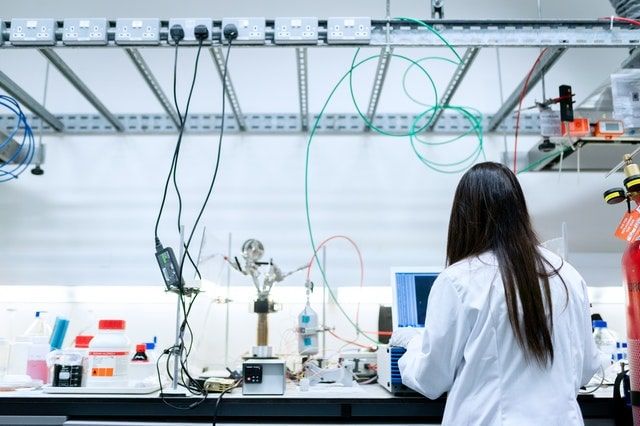Laboratory testing services play a crucial role in many sectors across Europe and the UK, ranging from healthcare to food safety, environmental monitoring, and product testing. This article provides an overview of the laboratory testing industry in Europe and the UK, profiling the leading companies and highlighting emerging trends.
Overview of the Laboratory Testing Industry
The laboratory testing industry, also known as in vitro diagnostics, refers to companies that provide analytical testing services, equipment, and supplies for clinical and non-clinical applications. Clinical testing involves human samples like blood or tissues to obtain medical diagnostic information, while non-clinical testing covers areas like food testing, environmental testing, forensics, and pharmaceuticals.
The global in vitro diagnostics market was valued at $69 billion in 2021 and is projected to reach $91 billion by 2026, exhibiting robust 6.1% CAGR growth. The increasing prevalence of chronic and infectious diseases, advancements in testing technologies, and rising investments in healthcare are key factors driving market growth.
In Europe, the in vitro diagnostics industry is well-established, fueled by an aging population, high healthcare spending, and stringent regulations for laboratories. Germany, France, the UK, Italy, and Spain represent the largest clinical laboratory testing markets in Europe. The non-clinical testing sector is also thriving, driven by strong demand from the food, agriculture, and manufacturing verticals.
The UK has one of the most advanced and productive in vitro diagnostics markets globally. It accounted for approximately 9% of the European IVD market share in 2021. Rapid innovation in genomics, proteomics, and point-of-care testing together with increased funding for biomedical research is propelling market growth.
Leading Laboratory Testing Companies in Europe and the UK
The laboratory testing services industry in Europe and the UK is highly fragmented, with hundreds of small labs and a few large commercial players. Here are profiles of the top 6 laboratory testing companies based on market share and reputation:
1. Synlab
– Headquarters: Germany
– Founded: 1998
– 2021 Revenue: €3.76 billion
– Testing capabilities: Clinical pathology, genetics, microbiology
– No. of employees: 30,000
– Key regions served: Mainly Europe and Latin America
Synlab is Europe’s leading clinical laboratory services provider involved in human sample testing. It offers a comprehensive test menu from routine blood tests to specialty genetic screening. Synlab operates in over 40 countries through a network of 450 laboratories and specimen collection centers.
2. Eurofins Scientific
– Headquarters: Luxembourg
– Founded: 1987
– 2021 Revenue: €6.72 billion
– Testing capabilities: Food, environmental, pharmaceutical, forensics
– No. of employees: 61,000
– Key regions served: Globally across 45 countries
Eurofins is a leading international provider of analytical testing services for non-clinical markets. It provides testing and support services to the food, environmental, agriscience, pharma, and consumer product industries. With over 800 laboratories worldwide, it offers one of the largest international networks.
3. Sonic Healthcare
– Headquarters: Australia (UK base in Oxfordshire)
– Founded: 1987
– 2021 Revenue: €7.6 billion
– Testing capabilities: Pathology, radiology, primary care
– No. of employees: 40,000
– Key regions served: Australia, Europe, North America
Sonic Healthcare is a leading global provider of essential medical diagnostic services, including laboratory medicine/pathology and radiology. It operates across eight countries through a federated business model that combines global scale with local autonomy.
4. Unilabs
– Headquarters: Switzerland
– Founded: 1987
– 2021 Revenue: €1.3 billion
– Testing capabilities: Clinical diagnostics and pathology
– No. of employees: 11,000
– Key regions served: Europe, Middle East, South America
Unilabs is a leading European diagnostic services provider focused on clinical laboratory testing and pathology services. Headquartered in Switzerland, it conducts over 400 million lab tests annually through a network of facilities across 17 countries.
5. LGC
– Headquarters: UK
– Founded: 1842
– 2021 Revenue: £471 million
– Testing capabilities: Forensics, food, pharmaceuticals, genomics
– No. of employees: Over 2,000
– Key regions served: Globally across continents
LGC is a global leader in the life sciences tools sector involved in forensic science, food and pharmaceutical testing, genomics, and reference standards. LGC operates state-of-the-art labs in the UK and other countries around the world.
6. Source BioScience
– Headquarters: UK
– Founded: 1999
– 2021 Revenue: £92 million
– Testing capabilities: Clinical diagnostics and life sciences
– No. of employees: Over 500
– Key regions served: Mainly UK and Ireland
We are excited to announce that next month we are sponsoring the NorthernBUG meeting in York on Friday 1st September.
For more information on the event, click here 👉 https://t.co/iYIrpRPbdg#Genomics #SangerSequencing #NGS pic.twitter.com/dqcneas2Rh
— Source BioScience (@SourceBio) August 15, 2023
Source BioScience is a leading UK provider of integrated clinical diagnostic and life science products and services. It operates a network of laboratories performing complex diagnostic tests for hospitals and medical research organizations.
Table: Top Laboratory Testing Companies in Europe and the UK
| Company | Headquarters | Founded | 2021 Revenue (EUR) | Testing Capabilities | No. of Employees | Regions Served |
| Synlab | Germany | 1998 | €3.76 billion | Clinical pathology, genetics, microbiology | 30,000 | Europe, Latin America |
| Eurofins Scientific | Luxembourg | 1987 | €6.72 billion | Food, environmental, pharmaceutical, forensics | 61,000 | Global |
| Sonic Healthcare | Australia (UK base) | 1987 | €7.6 billion | Pathology, radiology, primary care | 40,000 | Australia, Europe, North America |
| Unilabs | Switzerland | 1987 | €1.3 billion | Clinical diagnostics and pathology | 11,000 | Europe, Middle East, South America |
| LGC | UK | 1842 | £471 million | Forensics, food, pharmaceuticals, genomics | Over 2,000 | Global |
| Source BioScience | UK | 1999 | £92 million | Clinical diagnostics and life sciences | Over 500 | Mainly UK and Ireland |
Emerging Trends and Innovations
Several new developments are impacting and shaping the future of the laboratory testing industry in Europe and the UK:
– Point-of-care testing: Advancements in miniaturization and connectivity are enabling more rapid diagnostics at the site of patient care rather than at centralized labs. This improves turnaround times for test results.
– Digitalization: Laboratories are leveraging automation, artificial intelligence, and big data analytics to optimize workflows, reporting, and overall efficiency.
– Genomic testing: Next-generation DNA sequencing and genomic analysis services are becoming more common for personalized medicine applications.
– Mobile health: Increased adoption of at-home sample collection kits and wearables that integrate with lab service providers to enable remote patient monitoring.
– Pharmacogenomics: Using genetics to guide targeted drug therapies is gaining traction with some labs offering associated testing services.
– Accreditation focus: Laboratories are prioritizing quality standards certification like ISO 15189 to ensure technical competence and stringent quality control.
– Consolidation: Mergers and acquisitions are increasing as small niche players are acquired by big brands to expand test menus and geographic reach.
The Future of Laboratory Testing
Laboratory testing will continue to play a vital role in healthcare diagnosis, treatment decisions, public health, and enabling scientific research in Europe and the UK. Aging demographics, incidence of chronic diseases, investments into healthcare, and innovations in testing technologies will remain key driving forces.
However, laboratories also face challenges such as constrained budgets, personnel shortages, cybersecurity risks, and supply chain issues. As the healthcare paradigm shifts towards wellness, prevention, and personalized medicine, laboratories must adapt by providing more patient-centered services beyond just testing. Overall, it is an exciting time for the diagnostics industry, with new opportunities to leverage technology to improve efficiency, insights, and patient care.

